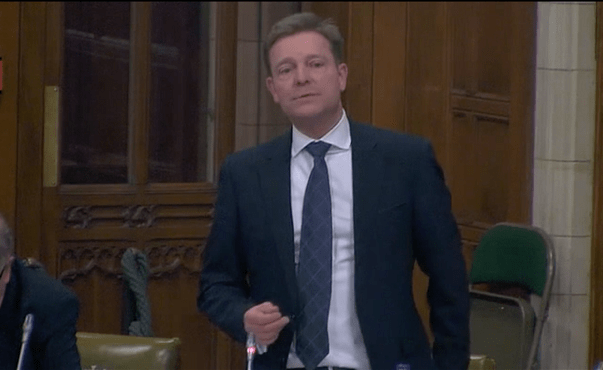
Strong evidence suggests a Tory MP’s expenses form for his general election battle was forged, a handwriting expert has told the jury at the trial of South Thanet MP Craig Mackinlay and two former aides.
Craig Mackinlay, 52, is on trial at Southwark Crown Court accused of overspending in his successful bid to beat the then Ukip leader Nigel Farage to the seat of South Thanet in 2015 and then submitting false expenditure declarations.
Mr Mackinlay, his election agent, Nathan Gray, 29, and campaign manager, Marion Little, 63, have all denied deliberately filing false returns.
The declaration submitted to authorities for the ‘long campaign’ period of the run-up to the election was likely a forgery, Southwark Crown Court heard.
‘Imitation’
As election agent, Mr Gray was to produce and sign the declaration and, to the untrained eye, his signature appeared on it. But Oliver Thorne, a forensic scientist specialising in handwriting, said this was an “imitation” and that there were also `”significant differences” to show the writing on the form was forged too.
“There’s strong support someone other than Nathan Gray both wrote and signed that form,” he said. The culprit is not likely to be Little or Mackinlay, he added.
Trevor Burke QC, defending Mr Gray, questioned whether the expert would have been able to “crack this case” if he was provided with examples of writing from the forger. Mr Thorne said he could, and perhaps in the space of a “couple of hours.”
‘Void’
Mr Mackinlay, an accountant by profession, was elected to Parliament on May 7, 2015 with a majority of around 2,800 from an electorate of 70,000.
He was re-elected to the seat in last year’s snap election with 25, 262 votes, ahead of Labour’s Raushan Ara, who polled 18,875 votes.
Declared spending on the 2015 campaign came in under the strict £52,000 limit. But jurors have been told his victory could have been made void if up to £66,000 of undeclared spending on staffing, accommodation and advertising was included on returns.
Duplicated invoices
Last week jurors heard that South Thanet Conservative Association secretary Miranda Bradbury had asked to see Mr Gray’s spreadsheet calculations before submitting the returns because she feared not every expense was accounted for.
She told Southwark Crown Court she wanted to be sure “that everything had been accounted for” adding: “I wasn’t 100% confident in what Nathan had sent.”
Prosecutor Aftab Jafferjee QC asked: “In terms of the spreadsheet, did you ever receive it?” “No,” she replied, before detailing what she said were missing and duplicated invoices, which she put down to inexperience and not dishonesty.
Mr Mackinlay denies two charges of making a false election expenses declaration under the Representation of the People Act 1983.
Mr Gray, of Hawkhurst, Kent, denies one charge of making a false election expenses declaration and a further charge of using a false instrument under the Forgery and Counterfeiting Act 1981.
Ms Little, of Ware, Hertfordshire, denies three counts of intentionally encouraging or assisting an offence under the Serious Crime Act 2007.
The defendants are all on bail while the trial, expected to last until December, continues.
Report Sam Blewett

